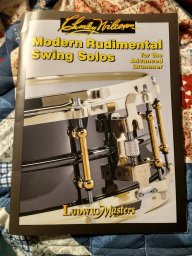I teach for a living and there is an innate insecurity of many students that if you are providing or explaining something they don't know of, you are 'condescending'. The word ends up on every teaching evaluation.
Any teacher worth his/her salt is an awful teacher if resorting first to jargon and technical detail. 'Blowing them away'. Thats ineffective and of course poor communication. They are either showing off to impress, or oblivious to their audience. Not somebody to listen to or learn from. Next please.
But you have to admit there is basic musical jargon to learn at first in any genre to converse with bandmates. If buddy in the R&B or rock band says something about the downbeat, backbeat, ritard, or the middle 8, we need to learn what these words mean. Jazz has its jargon, something I've personally never learned but would like to.
There is arrogance and chest-puffing in all fields - science, literature, music, sports, .....gotta set up your filter. Can't let a poor teacher or communicator turn us off from a subject one is interested in.
A great thread for discussion.
I teach as well...for 30+ years in both band and private lesson settings; 8yrs old to adults...
and the whole '
condescending 'thing is a problem with
society, not teachers. Eschewing "jargon" is a societal problem, not the teachers problem. People don't like to made to feel uncomfortable anymore, which to me os BS. There is not enough room in this post for me to bitch about it, and explain my solution, but I will say that I never skip teaching reading. I give a full on explanation to my students that from the beginning, we are going to learn how to spell, write and read the syntax of our language. Yes, we will also get to speak it and copy sounds, but it is skipping a major fundamental to not teach reading from the get go, especially if they are younger, when their brains are more ready to soak up that kind of info
obviously, I pace the learning to fit their comfort level, and make it fun - and directly applicable to what we are doing - but part of my teaching process - because I am old school - is to get them to NOT be afraid of failure and being uncomfortable with subjects....
and I bring that up in the very first lesson, while the parent is there too (if they are younger than 14ish). I say: " we are going to do some things that will put you outside of your comfort zone, but that is only to make you better, and more solid in the future. If you do things the correct way, in the correct order, and you DON'T skip parts of the process, then there
will never be any "uncomfortable" parts of learning drums, or anything for that matter.
That lack of comfort comes from lack of preparation" <- I reiterate this quite a bit...
so I don't shy away from "jargon", and I don't think anyone should. I just have figured out how to sprinkle it in so it doesn't seem cumbersome, and I think all great teachers are the ones who let the students
think they are doing their own thing, when they are really doing the teachers plan the whole time


